SDG and tuna fishing: how Zunibal contributes to the conservation and sustainable use of environmental resources
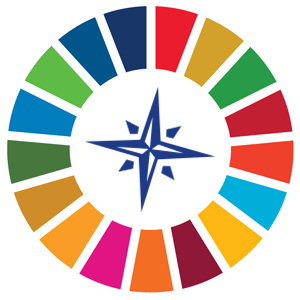 In recent years, the Sustainable Development Goals (SDGs) have become a fundamental framework for promoting sustainability in all economic activities. Tuna fishing is one of these activities, and at Zunibal we have become a benchmark in the sector thanks to our commitment to sustainability. In this article we will see how we work from Zunibal to contribute to the SDGs.
In recent years, the Sustainable Development Goals (SDGs) have become a fundamental framework for promoting sustainability in all economic activities. Tuna fishing is one of these activities, and at Zunibal we have become a benchmark in the sector thanks to our commitment to sustainability. In this article we will see how we work from Zunibal to contribute to the SDGs.
SDG 7: Affordable and clean energy
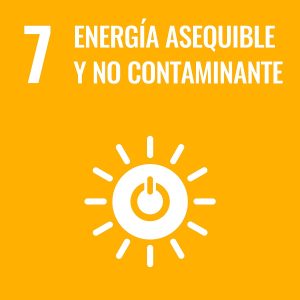
SDG7 refers to the need to guarantee access to affordable, reliable, sustainable and modern energy for all. At Zunibal we have invested in the use of clean technologies at our own facilities in Derio, such as solar energy, to reduce dependence on fossil fuels. In addition, our cloud service providers use 100% renewable energy and sustainable technologies, thereby significantly reducing CO2 emissions.
SDG 8: Decent work and economic growth
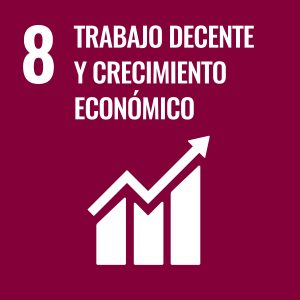 This goal promotes sustainable economic growth and decent work for all. We see it as essential to guarantee that workers in the fishing industry have decent and safe working conditions. At Zunibal we have implemented corporate social responsibility policies to guarantee the well-being of our employees and we have worked to improve working conditions throughout our supply chain. Likewise, we generate employment in underdeveloped countries such as Ghana and Senegal, contributing to the economy and well-being of these countries.
This goal promotes sustainable economic growth and decent work for all. We see it as essential to guarantee that workers in the fishing industry have decent and safe working conditions. At Zunibal we have implemented corporate social responsibility policies to guarantee the well-being of our employees and we have worked to improve working conditions throughout our supply chain. Likewise, we generate employment in underdeveloped countries such as Ghana and Senegal, contributing to the economy and well-being of these countries.
SDG 9: Industry, innovation and infrastructure
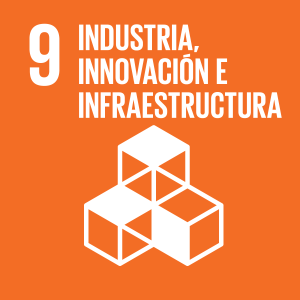
To ensure responsible consumption and production patterns, it is essential to ensure that the industry operates in a way that minimizes negative environmental and social impacts. At Zunibal we have implemented sustainability policies throughout our value chain, from manufacturing our products to catching tuna. Our Ecodesign certificate for the Tuna8 Explorer and Tuna8 Xtreme buoys and the Zunfloat platform guarantees consideration of all environmental factors throughout their life cycles, as well as design management to contribute to sustainable development and continuous improvement of environmental aspects related to these products. In addition, to reduce the environmental footprint of our facilities, we have strengthened our waste management practices through Lean Manufacturing to minimize the impact of our production.
SDG 12: Responsible production and consumption
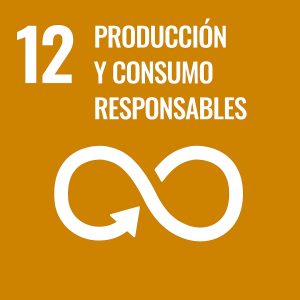 SDG 12 refers to the need to guarantee sustainable production and consumption patterns. In tuna fishing it is essential to ensure that the industry operates in a sustainable and responsible manner, minimizing negative environmental and social impacts. At Zunibal we have implemented sustainability policies throughout our value chain, from tuna capture to product marketing. Additionally, to reduce our carbon footprint we have strengthened our waste management practices to minimize the environmental impacts of our manufacturing.
SDG 12 refers to the need to guarantee sustainable production and consumption patterns. In tuna fishing it is essential to ensure that the industry operates in a sustainable and responsible manner, minimizing negative environmental and social impacts. At Zunibal we have implemented sustainability policies throughout our value chain, from tuna capture to product marketing. Additionally, to reduce our carbon footprint we have strengthened our waste management practices to minimize the environmental impacts of our manufacturing.
SDG 13: Climate action
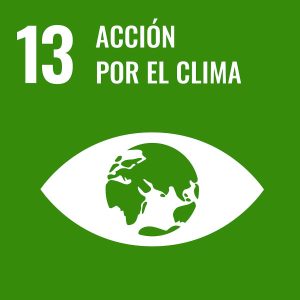 SDG 13 aims to take urgent action to combat climate change and its negative effects. At Zunibal we are focused on developing technology that reduces the consumption of fossil fuels by boats to reduce the impact of fishing. Thanks to our management software and devices, it is possible to considerably increase the boat’s route, since thanks to the sonar visualization of each buoy and the route optimization tool, a faster and more efficient activity is achieved. In this way, the use of fuel is minimized and, therefore, the impact of ships on the oceans.
SDG 13 aims to take urgent action to combat climate change and its negative effects. At Zunibal we are focused on developing technology that reduces the consumption of fossil fuels by boats to reduce the impact of fishing. Thanks to our management software and devices, it is possible to considerably increase the boat’s route, since thanks to the sonar visualization of each buoy and the route optimization tool, a faster and more efficient activity is achieved. In this way, the use of fuel is minimized and, therefore, the impact of ships on the oceans.
SDG 14: Life below water
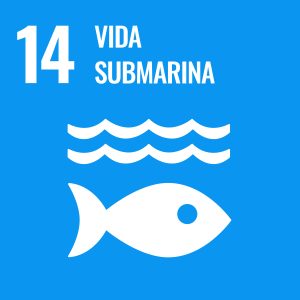
Responsible and sustainable fishing is one of our fundamental pillars and our activity is governed by this principle, which is why we focus our developments to promote responsible fishing practices, such as the reduction of accidental catches. That is why we have developed the triple frequency buoy which, thanks to the three sonicated transducers that sound in the same volume, manages to determine what type of tuna is below the FAD and reduces incidental fishing. Thanks to this state-of-the-art technology, we minimize the environmental impact of fishing activities, since it will be possible to identify and select the species to be captured and reduce the mortality of other species, preserving marine biodiversity. This buoy is the result of many years of research, in which our team of technicians and acousticians have been on board the boats working with the 3 scientific frequencies, collecting, analyzing and contrasting our data with the large amount of scientific information
This SDG is the most important for Zunibal, since it focuses on the conservation and sustainable use of the oceans, seas and marine resources for sustainable development. It is also the most relevant for the tuna fishing activity, since the fishing industry depends directly on marine resources and is responsible for a large part of the pressures on marine biodiversity.
To carry out the achievement of this objective, from Zunibal we collaborate with international organizations and participate in initiatives for the conservation and sustainable use of marine resources, for example the Bermeo Tuna Forum that will take place next May to sign the Agreement of the International Declaration for the Sustainability of Tuna.
SDG 17: Partnerships for the goals
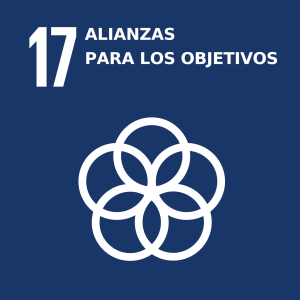
Goal 17 recognizes that achieving sustainable development requires cooperation and collaboration between different actors, including governments, companies, international organizations and civil society. To contribute to SDG17, at Zunibal we collaborate with companies, organizations and relevant actors in the fishing sector and ocean conservation. We have participated in collaborative initiatives and projects to promote responsible and sustainable fishing, share knowledge and good practices and work in together to address the challenges and opportunities in the sector. Specifically, we have collaborated with the Maritime Rescue Society to help locate shipwreck victims with our ZuniSOS emergency buoy, with which oil stains can also be tracked for proper disposal. In addition, we also collaborate with other non-profit associations such as PTEPA, which promotes technological development and innovation in the fishing and aquaculture sector; BBK Kuna, a space for social innovation in which various agents linked to the SDGs participate; and Bermeo Tuna World Capital, which promotes sustainable management around tuna as a natural resource globally from scientific knowledge and leadership of good practices.
In conclusion, the tuna fishing activity is closely linked to several Sustainable Development Goals, and at Zunibal we want to demonstrate our commitment to sustainability. We work to contribute to these goals by implementing responsible and sustainable fishing practices, promoting decent work and sustainable economic growth, investing in innovative technologies, and collaborating with local and international organizations. All this, at the same time, also contributes to the circular economy model, since we implement the value of sustainability from the manufacture of our products to their use by the end customer.
